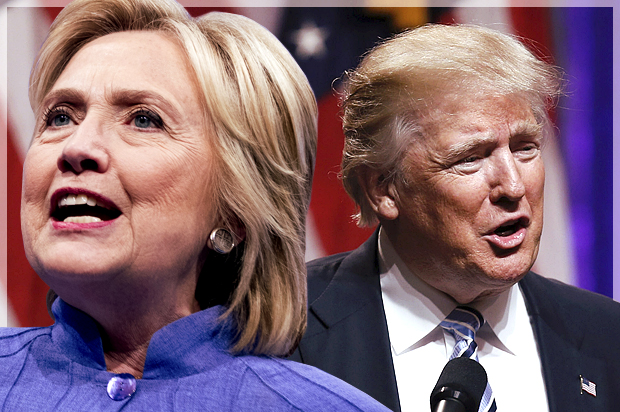For the first time in decades, the Republican National Convention that opened Monday may be a scene of an all-out political battle. The Democratic convention may see conflict too, although Bernie Sanders’ recent endorsement of Hillary Clinton makes that possibility less likely. The growing fissures in the major parties are causing widespread anxiety, and they do bring with them the risks of incivility, political violence, and other ugly turns in American politics. Rebellion against routine politics, however, is part of a long tradition in U.S. politics. And history suggests that in the long run, active disaffection with our party leadership is not always a bad thing.
Even more than policy, the divisions within each party concern the conduct of politics: how elections are funded, who gets to set policy agendas, what sorts of policies and expressions are out of bounds. Debates over these issues tend to get heated because they largely determine how political power is distributed. Most commentators see insurgents in these battles as dangerous and unreasonable. Many wrote off as perverse Sanders’ failure to follow convention and immediately endorse Hillary after the California primary. Similarly, pundits often depict Trump as a white male id rather than as a shrewd, if dangerous, political innovator. Yet anger at political elites is a recurrent theme in U.S. history.
In fact, discontent with routine politics has been present in the United States whenever there has been routine politics. It reached dramatic heights in the 1790s, the late 1810s and 1820s, the 1850s, the 1880s through the Progressive Era, and the 1960s and early 1970s. When Congress granted itself a six-fold increase in pay in 1816, for example, citizens and dissident politicians from Vermont to Missouri met, demanded the law’s repeal and organized to defeat the bill’s supporters in the coming election. Some burned their representatives in effigy, while others denounced them for trying “to render themselves . . . a privileged order.”
Major outbreaks of discontent with the political system have emerged in moments when the political system seemed most unresponsive—for example, when party leaders strained every muscle to silence debate on the issue of slavery. In moments like these, citizens and dissident politicians bypassed blockages in the system by developing or borrowing alternative ways of addressing their issues. During the 1850s, for example, antislavery northerners formed vigilance committees and rescued captured fugitives from slave-catchers and federal marshals.
The Kansas-Nebraska act, which rescinded the rule barring slavery from the Kansas and Nebraska territories, inspired the organization of ad hoc “Anti-Nebraska” parties; it also led both pro- and anti-slavery activists to send arms and emigrants to fight in Kansas. Controversies like these could remain unresolved for decades, leaving the political landscape littered with failed experiments and shattered political alignments; the struggle to bypass the major parties’ silence on slavery went on for four decades, and was finally resolved only by the Civil War. Yet we can now see clearly something urgently in need of change was being negotiated, outside the center of established politics.
Contemporaries can never predict what the outcome of a given conflict between party leaders and rank-and-file Americans will be. Still, such clashes have resulted in many of the practices and institutions that we now see as essential to “democracy.” The struggles of the 1810s and 1820s resulted in two-party electoral competition being placed on a (so far) permanent footing. It also gave birth to partisan democracy’s main competitors, including third parties and morally centered social movements such as temperance and abolitionism. The conflict over slavery destroyed the Whig party, split the Democrats in two, and gave birth to the Republican party before leading to Civil War and, ultimately, emancipation. Battles over the rules of politics also led over time to a broad expansion of voting rights: first to propertyless white men, later to women, African Americans and other excluded groups.
Far from being foreign or even unwelcome element in the body politic, rebellions against routine politics are part of a long tradition in American public life. “Democracy” is hardly a stable, objective term. Its meaning and practice have changed dramatically over the past two hundred years, and those changes have resulted from the sort of insurgencies that we are seeing today. If the national conventions give rise to incivility over the next two weeks, remember that rebellions like these are as American as apple pie — and that they have created the democracy that we cherish today.

